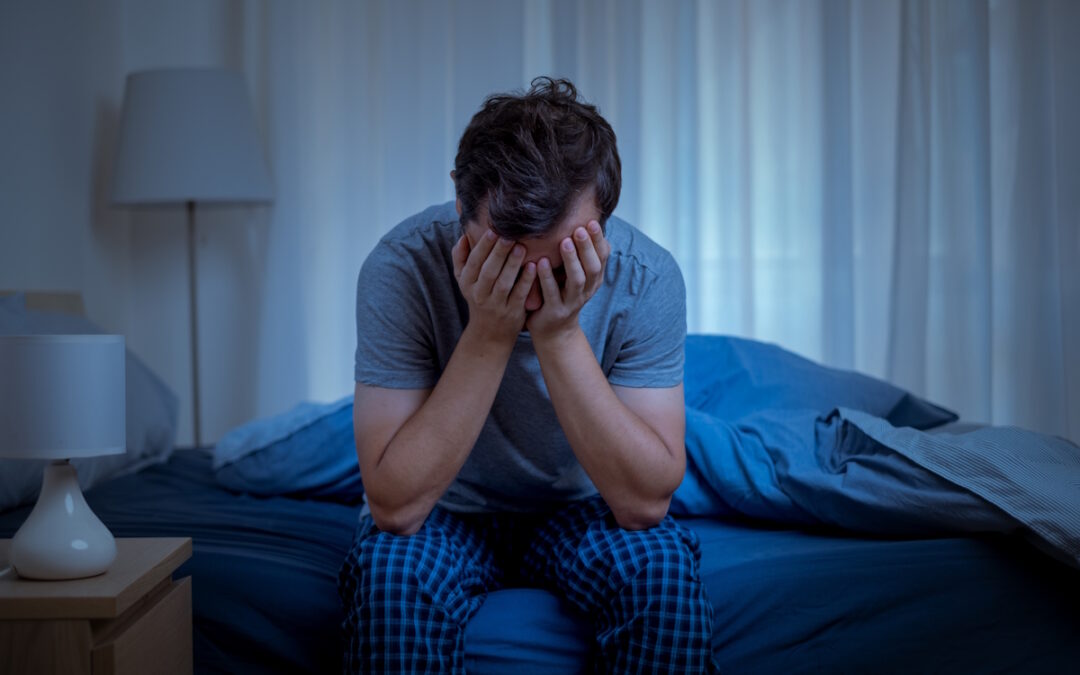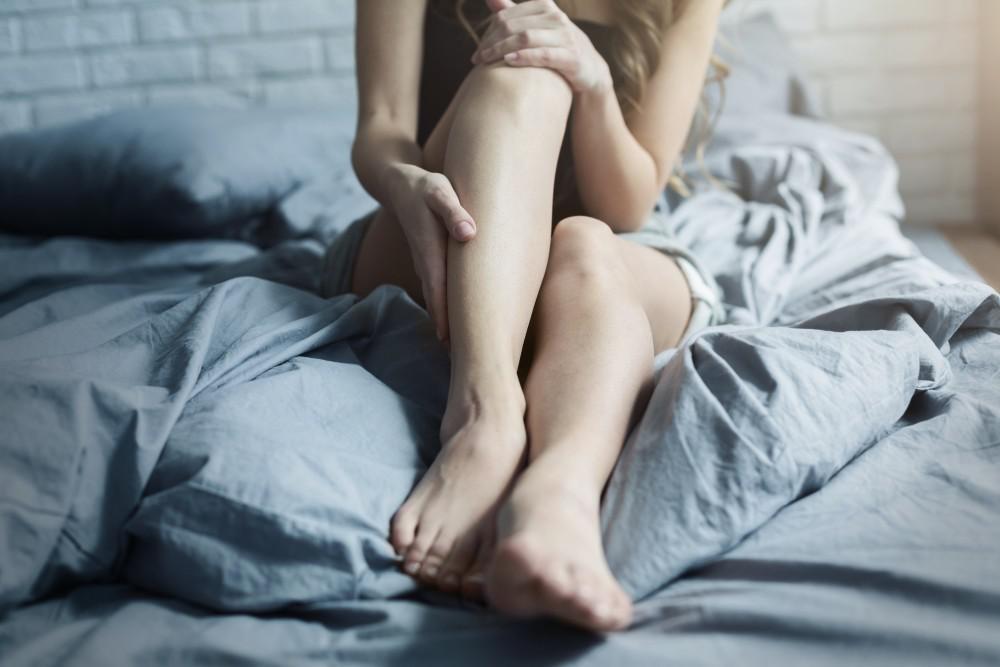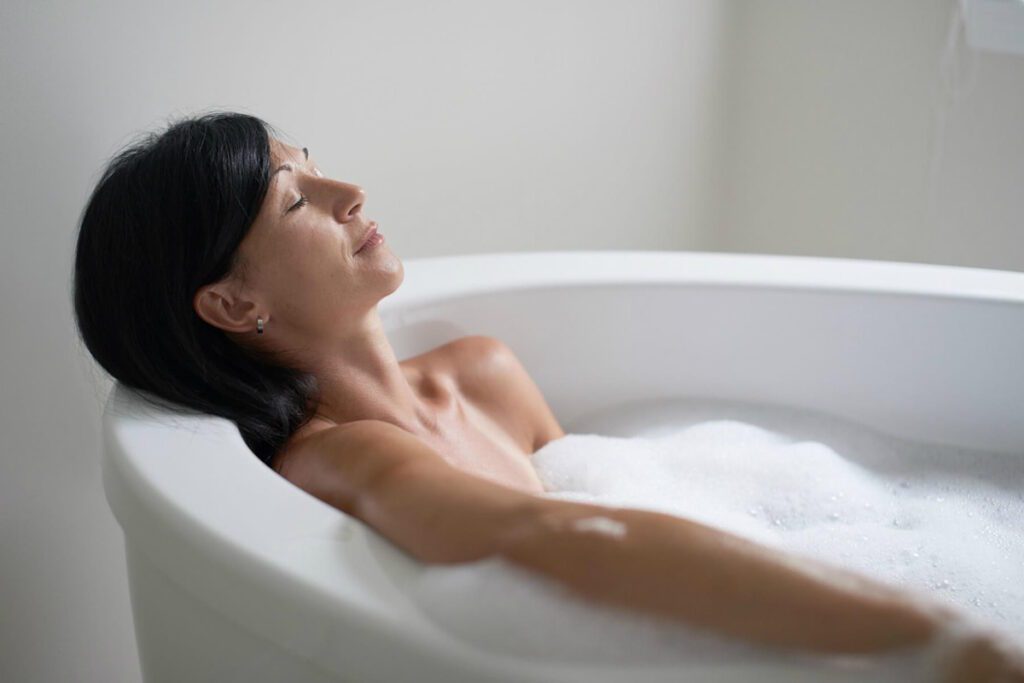How to Prevent Restless Legs Syndrome from Ruining Your Sleep
Author: StrideCare Internal Team

If you’re dealing with the creeping, crawling, and pins and needles sensations commonly associated with restless leg syndrome, you know how hard it is to get a good night’s sleep. And if you don’t sleep well, you can’t function at your best. Perhaps you find it challenging to stay awake at work. Maybe you frequently lose interest in daily activities or withdraw from social events because you’re too tired. You may also be sleepy behind the wheel, which is dangerous. Needless to say, all of these things can be improved with proper rest.
There are lifestyle changes you can make to help your restless legs. But sometimes, vein treatment provides the best relief. If you’re ready to get your life back, please consider visiting StrideCare. By treating the root cause of restless leg syndrome, our patients can experience dramatic relief from a variety of uncomfortable symptoms.
Are You Experiencing Any of These Symptoms?
- Uncontrollable urge to move your legs while sitting or resting
- Prickling, burning, aching, itching, tugging
- Nighttime leg twitching or kicking
- Pins and needles sensation
- Difficulty falling asleep and staying asleep
- Muscle cramps
- Numbness
- Pulling or creepy-crawly feeling in legs
What Causes Restless Leg Syndrome?

Restless leg syndrome, also known as Willis-Ekbom Disease, affects approximately 1-10 adults. According to the Restless Leg Syndrome Foundation, that’s 12 million Americans. Restless leg syndrome is formally classified as a sleep disorder since it typically happens when a person is at rest and only improves with movement. As a result, patients often experience fatigue and daytime sleepiness—in addition to the other intolerable sensations mentioned above. More women than men suffer from RLS, and it can affect any age group.
Causes of Restless Leg Syndrome
Medications — Certain medications such as antidepressants, cold and allergy medications, and even anti-nausea drugs may aggravate leg pain at night.
Genetics — Leg pain associated with restless leg syndrome does run in some families.
Pregnancy — Roughly 10-34% of pregnant women report experiencing some form of restless leg syndrome, especially during the last trimester. Fortunately, these leg pain sensations typically disappear soon after birth.
Chronic diseases — Iron deficiency, kidney failure, diabetes, neuropathy, end-stage renal disease, and hemodialysis all include symptoms of RLS. Therefore, treating these conditions can provide relief.
Vascular issues — The National Sleep Foundation says 98% of patients who experience RLS saw a dramatic improvement in their symptoms after receiving treatment for their varicose veins or chronic venous insufficiency. These diseases cause restless leg syndrome since blood is not emptying out of the legs properly. This leads to various symptoms as the patient constantly needs to move their legs. Moving one’s legs helps to pump blood back toward the heart.
The last item on this list is of particular concern to our team of experts at StrideCare. The reality is that many people don’t think about their veins because 1) they can’t see them, and 2) they’re usually working fine. The veins are the highway system through which blood is transported throughout your body. But as we age, the valves in our veins may weaken and can be affected by life choices such as diet, excess weight, smoking, and a sedentary lifestyle. As a result, they don’t work like they once did.
Like anything else, vein disease symptoms show themselves in stages. At first, it may be a few unsightly spider veins and varicose veins that aren’t painful. As the disease progresses, patients experience a variety of painful symptoms, including those associated with restless leg syndrome.
It’s important to recognize vein disease in its earliest stages and seek help from a medical professional who can guide you on your next steps. Our team at StrideCare is here to support you.
Are There Any Home Remedies for Restless Legs?
- Exercise daily and take walks
- Apply ice packs or warm compresses
- Massage your legs and feet
- Check your medication side effects
- Get your iron levels checked (low iron could contribute to restless legs)
- Avoid caffeine in the late afternoon and evening
- Take a warm, relaxing bath

When home remedies don’t alleviate your symptoms, it may be time to consult one of our vein experts. We will review your health history and order diagnostic tests to determine what’s causing your restless legs. Once we have the full picture, we’ll discuss your treatment options.
Sleepless Nights with Restless Leg Syndrome? Treat the Root Cause
Vascular specialists like the team here at StrideCare are committed to diagnosing and treating the root cause of your restless leg syndrome rather than focusing solely on symptoms. When the root cause is addressed, patients typically find they are not in as much discomfort and can go on to lead normal lives.
When vein disease is the culprit, there are minimally invasive treatment options to get you back to living a pain-free lifestyle. This includes:
- Sclerotherapy — Specialists inject a small amount of a specially formulated chemical solution full of sclerosing agents into the affected veins to reduce pain and discomfort caused by the enlargement or swelling of the veins. This solution irritates the vein walls and causes the vein to collapse and disappear.
- Radiofrequency ablation — A catheter is inserted into the diseased vein through a small puncture. The catheter is guided up into the great saphenous vein in the thigh or the small saphenous vein in the calf. The radiofrequency energy is delivered to the inside of the vein, cutting off blood flow and relieving symptoms.
StrideCare has long been a leader in performing leading-edge procedures to treat vein disease and symptoms that, while minor in their earliest stages, can eventually lead to more serious and life interrupting issues. This includes spider veins, as well as varicose vein treatment, venous insufficiency, restless leg syndrome, vein thrombosis, leg swelling, leg skin ulcers, and more—all the while providing compassionate patient care.

Our specialty team includes vascular surgeons and vein specialists. This helps us stay on the cutting edge of medicine, helping patients avoid traditionally long invasive surgeries used in the past to treat vascular disease. More good news: treatments are covered by most medical insurances and Medicare. Plus, you can be treated at StrideCare’s outpatient clinics without ever having to visit the hospital.
Prior to starting any new treatment or questions regarding a medical condition, always seek the advice of your doctor or other qualified health provider. This information is not a substitute for professional medical advice.
StrideCare serves the South Texas area including Houston, San Antonio, Austin, Round Rock, Bastrop, Brushy Creek, Cedar Park, Converse, Georgetown, Hutto, Kyle, Leander, Marble Falls, New Braunfels, Pasadena, Pearland, Pflugerville, San Marcos, Schertz, Houston, Sugar Land, Katy, Webster, Bay City, Clear Lake, Lake Jackson, The Woodlands, Universal City, Spring, Kingwood, Stafford, Conroe, Texas City, Cypress, League City, Bellaire, and more.


